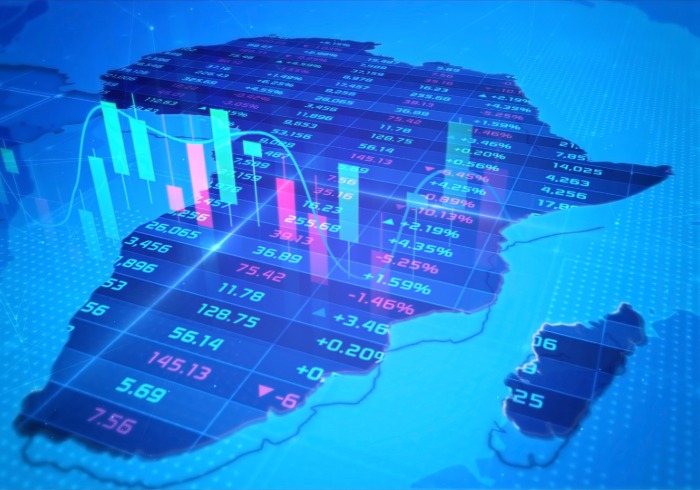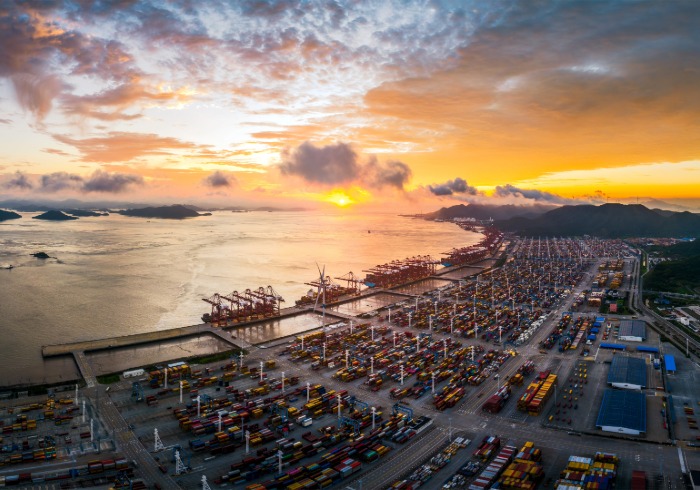The UK’s courtship of trade with developing countries after Brexit risks exacerbating the country’s exposure to trade-based money laundering (TBML), according to new research.
As part of the country’s trade strategy after departing the EU, the UK’s Department for International Trade (DIT) announced plans earlier this month for a Developing Countries Trading Scheme (DCTS), which would cut tariffs or simplify rules of origin requirements for up to 70 countries.
The government said the system will be a more effective version of the EU’s Generalised Scheme of Preferences, which the UK has rolled over since Brexit.
The announcement coincides with the publication of a pilot study which concludes that accelerated trade with less developed countries is likely to increase the UK’s exposure to TBML and that regulators and law enforcement are ill-equipped to investigate it and “underestimate” money laundering vulnerabilities of trading with high-risk jurisdictions after Brexit.
Banks, whose compliance staff are often better than police and regulators at understanding and detecting TBML, are likely to be left “policing” the crime, according to the study published in the Journal of Money Laundering Control by Mariola Marzouk, a doctorate student at the University of Portsmouth and anti-financial crime technology consultant.
Marzouk interviewed senior TBML experts at UK banks, who said law enforcement bodies responsible for investigating and prosecuting trade-based financial crime face a brain drain to the private sector, which offers better pay, career progression and more rewarding work.
“TBML is just too costly to investigate and even harder to prosecute,” one participant said. Another said they left law enforcement because of a “frustrating lack of focus on investigating economic crimes”.
“They do feel they’re making a bigger difference within financial institutions,” Marzouk tells GTR in an interview.
Interviewees also cited a lack of dialogue about cases and patterns between financial institutions and law enforcement. The Joint Money Laundering Intelligence Taskforce (JMLIT), in which banks and investigators share information about large and complex money laundering schemes, was seen as successful but only deals with a tiny number of cases.
Expansion of trade, expansion of risks
Developing countries often lack tough anti-money laundering rules, or the resources to enforce them. Marzouk says the biggest risks stem from open account trade, where parties have to divulge little information about themselves and which banks struggle to monitor. For documentary trade, difficulty sourcing know-your-customer information is also an obstacle for trade finance with developing countries, she says.
Participants in the study said it is particularly challenging to monitor small and medium companies trading with Asia, Latin America and Sub-Saharan Africa, regions “known for large illicit outflows”. Marzouk says that the coronavirus pandemic has also created a glut of legitimate trading businesses that are vulnerable to collusion with criminals, or to being taken over by criminal organisations.
The UK’s December 2020 national risk assessment on money laundering and terrorist financing, published by HM Treasury, devotes more attention to the risk of TBML than the previous assessment, published in 2017.
“There is growing concern about the criminal infiltration of legitimate supply chains not reliant on any form of misrepresentation of price, quantity or quality of goods,” the 2020 document says. “This emerging risk creates even greater challenges in successfully detecting TBML.”
It highlights trade in used cars, clothing, construction, gold, pharmaceuticals and textiles as common products that are used as “cover” for financial crime.
The 2017 risk assessment pointed out that criminals have used TBML in trade and financial flows between the UK and Pakistan, one of the countries singled out by trade secretary Liz Truss as a beneficiary of the proposed DCTS scheme.
DIT’s consultation on DCTS does not canvass financial crime risks but proposes that a country’s participation in the scheme can be “varied or suspended” if it “has engaged or is engaging in serious and systematic violations of the principles of international conventions on anti-terrorism and money laundering to which the United Kingdom is a party”.
The consultation proposes trimming tariffs for lower and middle-income countries and simplifying rules of origin requirements for least-developed countries, which already enjoy tariff-free access.
Neil Chantry, a specialist consultant and former HSBC global trade and compliance executive, says Brexit has not changed the UK’s TBML risks, which he describes as poorly understood by most wealthy countries as well as poorer nations.
“The awareness of TBML is lacking from policymakers right through the enforcement agencies. Only a few specialists are aware and doing the best they can,” he tells GTR. “The Financial Conduct Authority is aware; however, the expectations often exceed the capabilities of the financial institutions with the exception of a few of the largest multinational banks.”
Banks also face further compliance headaches if the UK government proceeds with plans to set up free port zones, experts have previously told GTR.
Marzouk says the UK should consider the creation of a transaction monitoring utility in which banks pool information to detect illicit activity that would not be visible by individual institutions. Several Scandinavian banks launched such a utility in 2019, followed by a group of Dutch lenders last year.
For such efforts to work, Chantry says better and standardised data reporting and analysis on TBML is needed.
“No regulator or enforcement agency has the correct suspicious activity reporting systems for the reporting of the important data to be able to triage reports and collate and determine patterns.
“This is also true of many financial institutions, especially small and medium-sized banks and ones that specialise in trade finance.”







